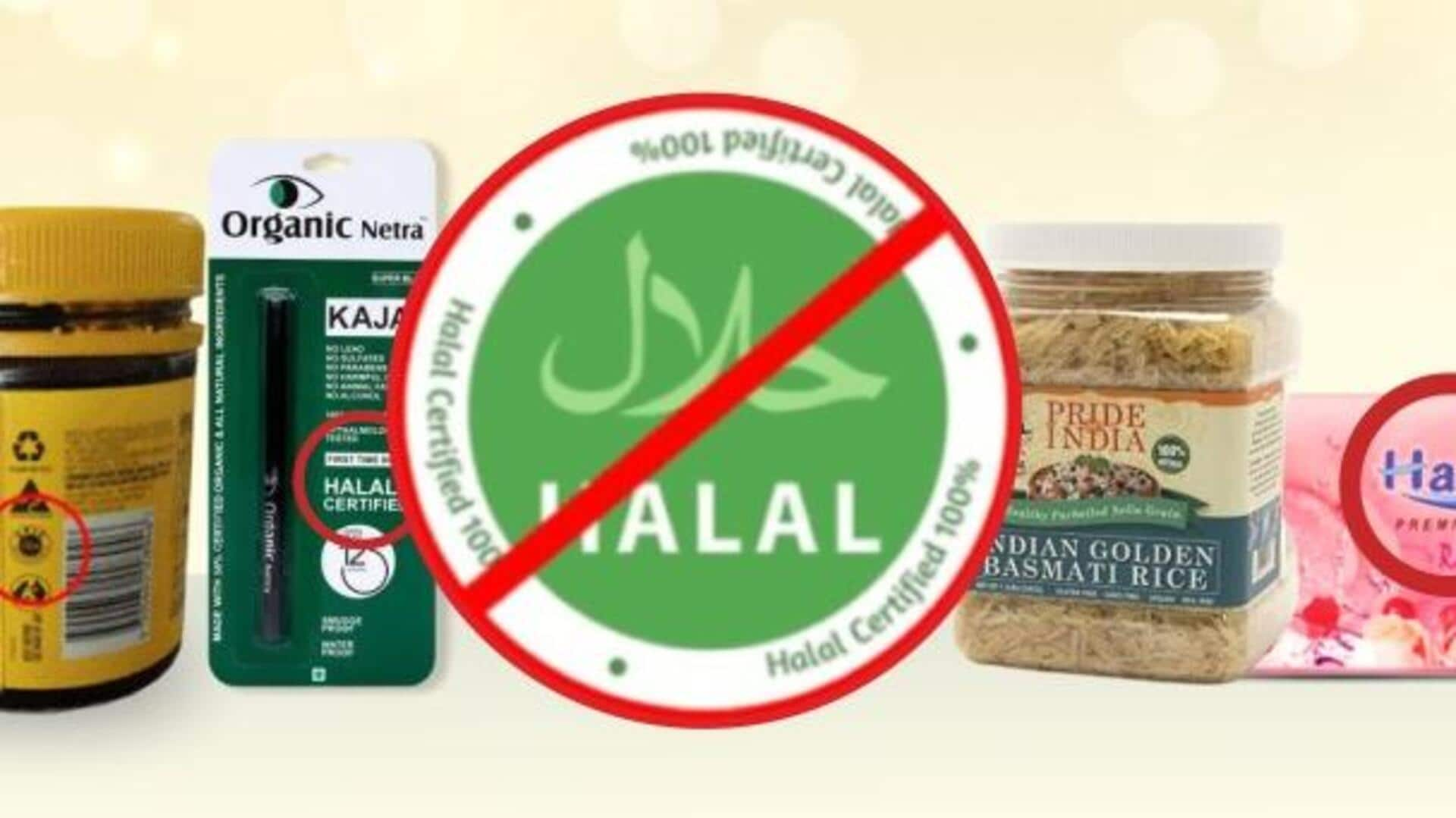
Why UP government has banned halal-certified products
What's the story
The Uttar Pradesh government on Saturday banned the production, storage, and distribution of all halal-certified food items with immediate effect. Halal is an Arabic word, which means "permissible" or "lawful" in Islam. The government's diktat on halal meat has triggered a controversy that majorly revolves around two aspects—the legality of the certificate issuing authority and the allegation of targetting a particular community.
Context
Why does this story matter?
The first record of halal meat certification for slaughtered meat goes back to 1974. The Indian law does not mandate halal certification. There is no regulatory law for it as well. Notably, the United States Department of Agriculture (USDA) states that halal certification in the form of an internationally recognized certificate is "not necessary to obtain trade permissions for exports or imports."
Ban
What is Halal meat?
Halal meat implies all meat that is obtained through a process prescribed in Islam. In this case, the meat has to be slaughtered through the throat, esophagus (food pipe) and jugular veins (which stretch from head to upper chest) not through the spinal cord. On the other end is the Jhatka method, wherein the animal's neck gets the blow.
Twitter Post
Announcement by UP government
#UPCM श्री @myogiadityanath जी के निर्देश पर प्रदेश सरकार ने हलाल प्रमाण-पत्र वाले उत्पादों, औषधियों, चिकित्सा व प्रसाधन सामग्रियों की उत्तर प्रदेश में बिक्री पर प्रतिबंध लगा दिया है।
— Government of UP (@UPGovt) November 19, 2023
इनके निर्माण, भंडारण, वितरण और खरीद-फरोख्त पाए जाने की स्थिति में विधिक कार्यवाही की जाएगी। यह… pic.twitter.com/L5NlRMt1tI
Controversy
What is the controversy around?
The Uttar Pradesh's Food Safety and Drug Administration department said that the Halal certification of food items creates a parallel system, leading to confusion amongst consumers. It added that labeling vegetarian products like oil, soap, and toothpaste was also a deliberate criminal conspiracy against members of a certain community and its products. It revealed that there were companies issuing false halal certificates.
Terror
Financial gains potentially used to fund terror outfits
On Friday, an FIR was filed at the Hazratganj Police Station in response to a complaint filed by Shailendra Kumar Sharma, who accused four companies of issuing halal certificates without authority. Sharma also claimed that "financial gains from the activity are being used to fund terror outfits." The charges filed include criminal conspiracy, promoting enmity between different groups, extortion, cheating, and forgery, among others.
Details
Are all vegetarian food halal?
All vegetarian food is considered halal unless it contains alcohol and pig fat. However, the UP administration said that such products were being certified unnecessarily. Notably, authorities reasoned that the ban was ordered due to multiple complaints that products such as dairy items, sugar, bakery products, peppermint oil, salty ready-to-eat beverages, and edible oils were being labeled with halal certification.
Vande Bharat
Vande Bharat train
In July, a controversy emerged after a customer traveling through the Vande Bharat train questioned the tea premix that was "halal certified." Railways clarified that it was 100% vegetarian and the labeling was done for other countries as they also exported the premix. Interestingly, besides food, many cosmetics are also certified to ensure that no haram meat or alcohol is used in them.